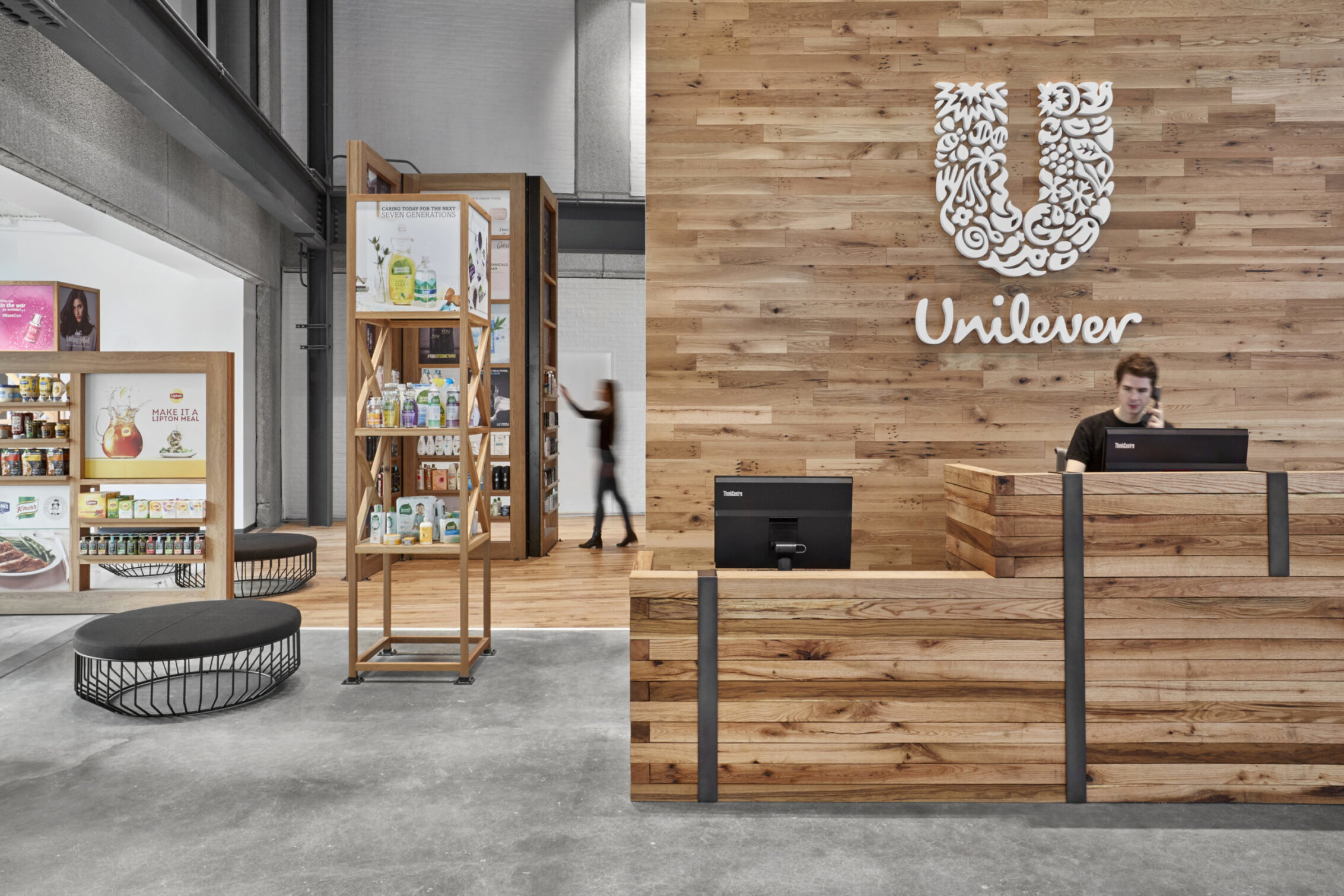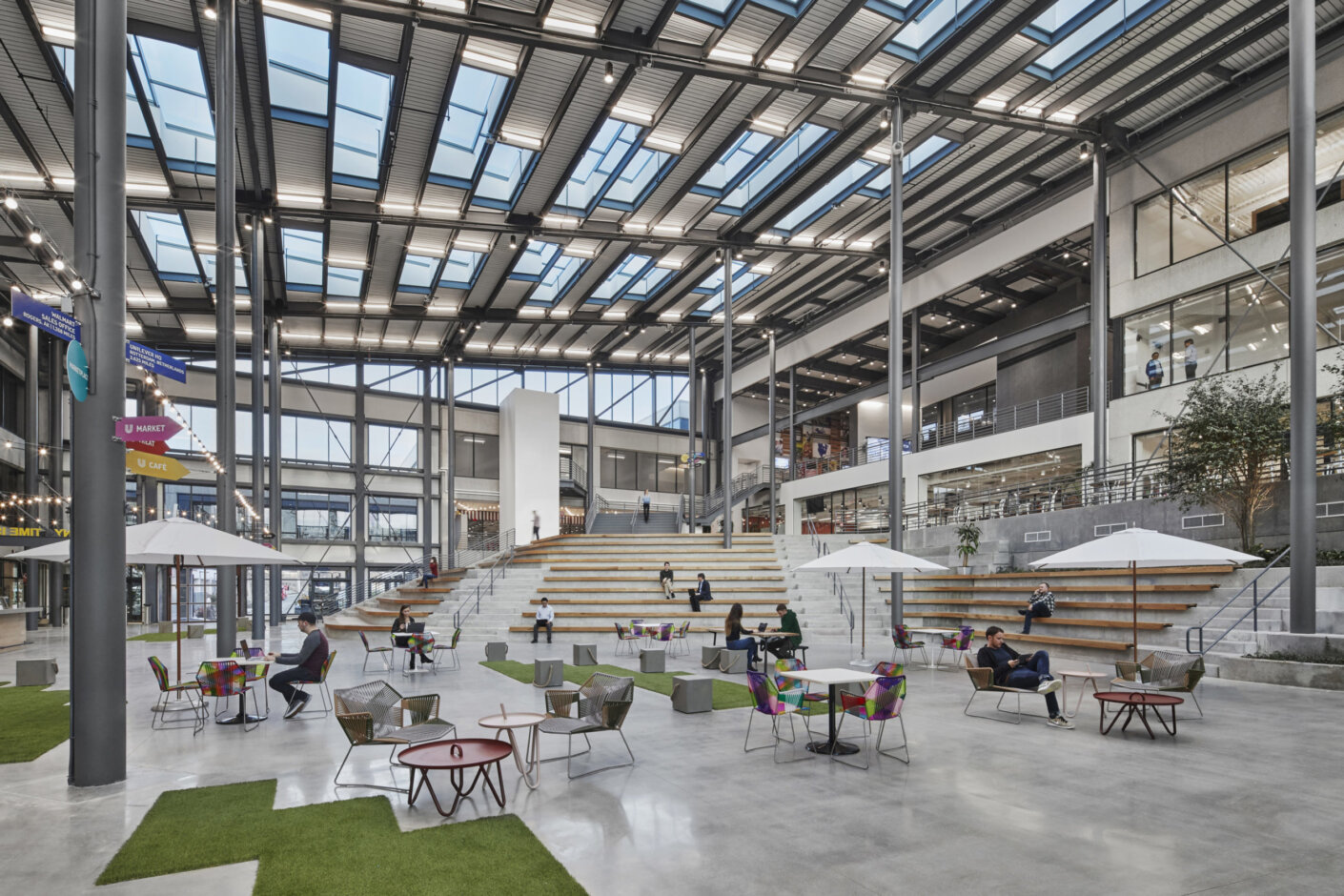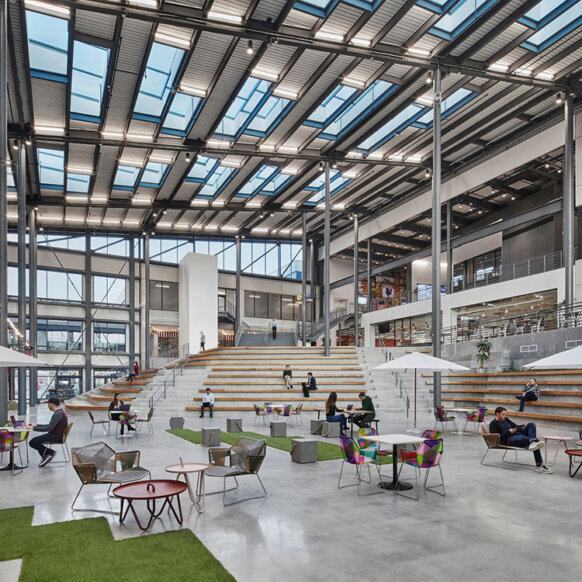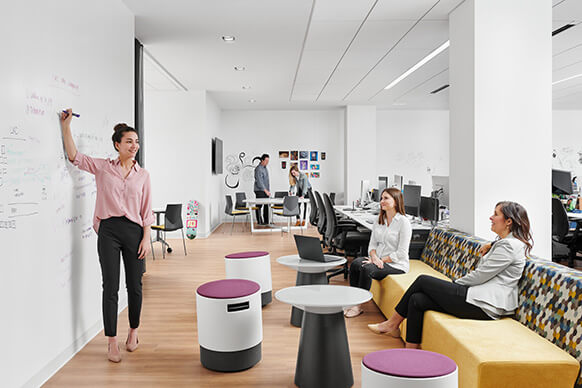ENGLEWOOD CLIFFS, N.J. — May 14, 2019
The newly redeveloped Unilever North America headquarters building in Englewood Cliffs, N.J., has received LEED Platinum certification from the U.S. Green Building Council (USGBC), the highest level of LEED certification available for sustainable buildings. The certification process assesses buildings across several categories including: location and transportation, sustainable sites, water efficiency, energy and atmosphere, materials and resources, indoor environmental quality, innovation and more.
As further recognition of the building as one of the most sustainable and technologically advanced redevelopments recently completed in the New York metropolitan area, Unilever’s building has been named the LEED Commercial Project of the Year by the USGBC in New Jersey. The project was also recognized by the New Jersey Business & Industry Associate New Good Neighbor Award.
Plans for the new corporate headquarters launched in 2014 in support of the Unilever Sustainable Living Plan, which calls for the consumer goods company to reduce its carbon footprint by 50 percent while doubling its business. The new building unified four office buildings from the Englewood Cliffs campus into a single, state-of-the-art workplace. The project was completed in 2018.
“The Englewood Cliffs headquarters project was developed with sustainability at its heart, and it was evident at every step of the process from choosing our partners and planning to construction and design,” said Unilever North America Workplace Director Nathaniel Barney. “At Unilever, we believe we have a responsibility to make sure our operations leave as small a footprint as possible on our planet while also providing our employees with a safe, healthy, and productive work environment. We are proud to earn the LEED Platinum certification as a result of these efforts.”
Workplace strategists and designers from Perkins&Will helped Unilever craft a future-proofed vision for its new headquarters—a concept and design known as “the Marketplace”—which entailed the creative retrofitting, renovation, and repositioning of the company’s existing corporate campus. The 325,000 square foot renovation included interiors, as well as the construction of an entry pavilion and common area that stitched together the open space between individual buildings to create an entirely new, enclosed structure. The efficient building achieved a 41% reduction in square footage, while being able to house more employees, which means less resources are needed to light and climate control the building.
The final building design incorporates smart technologies by EDGE that record data and automate the building’s features and functions, including Internet of Things (IoT) systems that enable the building to learn from occupants’ behaviors and remember their preferences.
The entire project was carried out with sustainability at the heart of the strategy. During the building phase, 75 percent of the construction materials were diverted from landfill. A shuttle service from New York City, Hoboken and Jersey City has supported a 40% reduction in individual cars.
“This was a collaboration in the truest sense of the word,” says Perkins&Will Principal Paul Eagle. “Not only did the new headquarters have to be modern, flexible, and conducive to employee health and well-being, but it also had to fulfill the ambitious sustainability goals set forth by Unilever. It all hinged on an incredible team working together to break new ground and develop a new model for sustainable, suburban campuses.”
With the workplace strategy and design concept from Perkins&Will in place, real estate experts at Cushman & Wakefield served as project manager and, together with developers EDGE Technologies and Normandy Real Estate Partners, devised a sustainability strategy and transaction approach that reduced the headquarters’ energy cost dramatically to offset the overall cost of occupancy.




